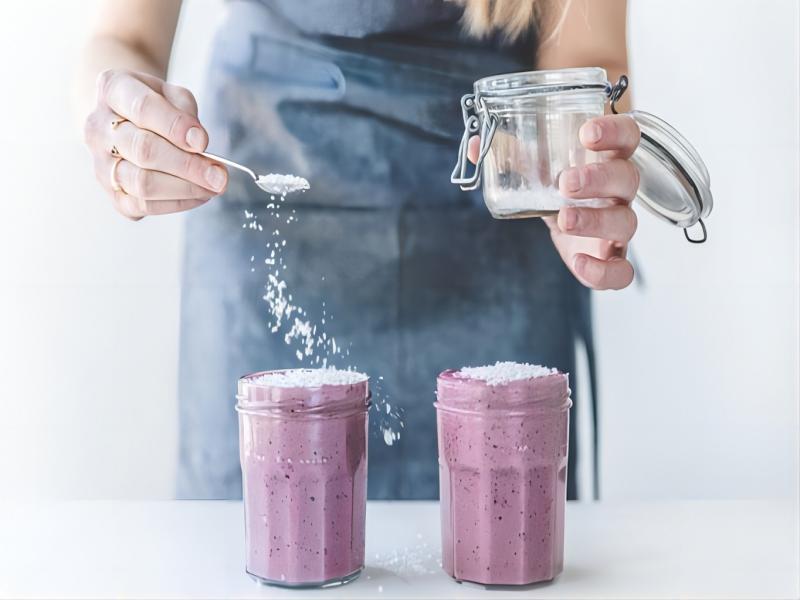Artificial sweeteners are chemicals that are added to our foods and drinks, to sweeten them. Compared to regular sugar, they’re lower in calories and don’t elevate blood sugar levels, making them helpful for weight and diabetes management. They also are safe for your teeth, unlike sugar which can lead to dental cavities.
Artificial sweeteners are sometimes hundreds to thousands of times sweeter than sugar. They work by allowing your brain to register the sweet taste, yet the way they are broken down in your body is different from sugar. So you get a sweet taste without the extra calories.
For a sweetening agent to work properly, a sweetener should be soluble in water and it should readily bind with a receptor molecule present on the surface of the tongue. The receptor is connected with a G- protein and when the sweetener binds with the receptor, the G- protein starts dissociating which in turn activates a nearby enzyme and triggers a sequence of events in which the signals are transmitted to and are interpreted by the brain. The interaction between the receptor and sweetener accounts for the sweetness of an artificial sweetening agent.
The FDA has approved five artificial sweeteners including saccharin, acesulfame, aspartame, neotame, and sucralose. It has also approved one natural low-calorie sweetener called stevia.
Stevia is a natural sweetener that comes from the leaves of a plant species, Stevia rebaudiana. This plant is native to Brazil and Paraguay.
Just like with any food, there is a big difference between growing stevia at home, versus getting processed versions at the store. Products at the stores don’t contain the whole stevia leaf which tends to be healthier.
Artificial sweeteners are man-made chemicals, meaning they can’t be found in nature. They typically taste a lot sweeter than real sugar.
Sugar alcohols contain about half of the calories as regular sugar. They don’t cause drastic increases in blood sugar, so they may be a helpful replacement for people with diabetes.
They don’t get fully digested so some people may experience bloating, gas, and stomach upset after eating too many of them.

2. Diabetes: It also helps in controlling diabetes as it does not raise blood sugar levels because it does not contain the in carbohydrates it.